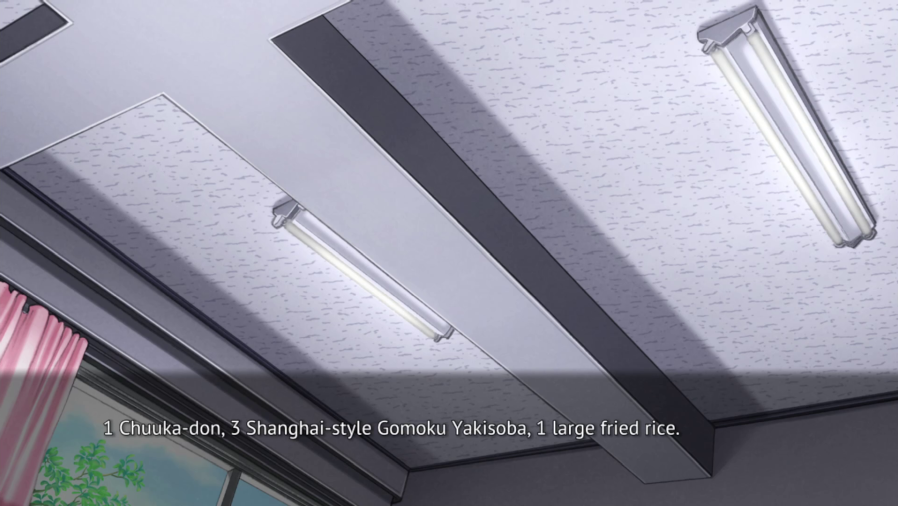Toggle Background Color
VIDEO: Tsumihoroboshi-hen | TIP 8: Lunch Takeout List
BGM: Depressive Paranoia
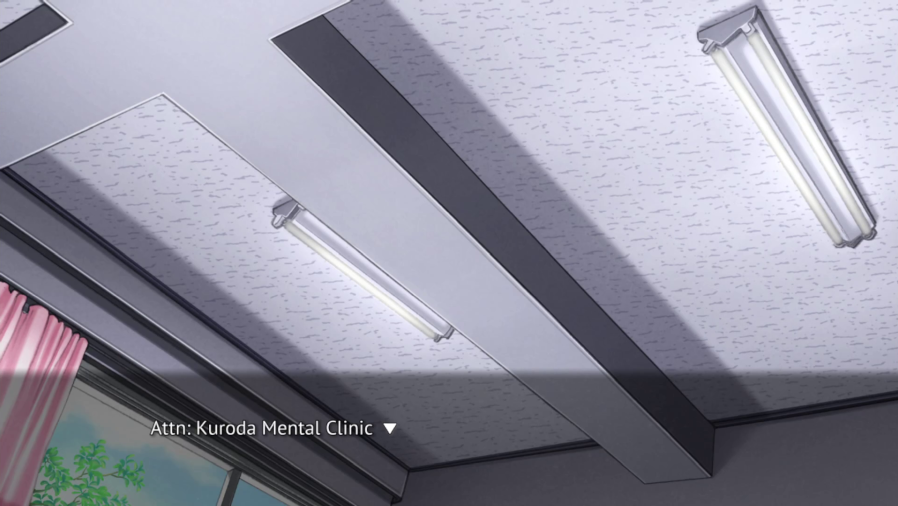
Hello.
To get straight to the point, we can assume that this is an acute case of post-traumatic stress disorder.
The patient is subject to tremendous stress because of her parents' sudden divorce, and being forced to choose to live with either her mother or her father.
Furthermore, the patient firmly believes that she was responsible for her parents' divorce, which further drives her to self-mutilation.
The patient's largest shock stems from a sense of betrayal of her own household, which she believed was an absolute safe haven.
Henceforth, there is a high possibility that the patient will resort to psychological defense measures to protect her family.
(For example, she might feel high disdain for any person of the opposite sex who approaches her father. She might feel uncomfortable about having other people in her home. She may also display eccentric behavior in order to keep people away from it. As an example of the latter, there are reported cases of patients unconsciously bringing home garbage.)
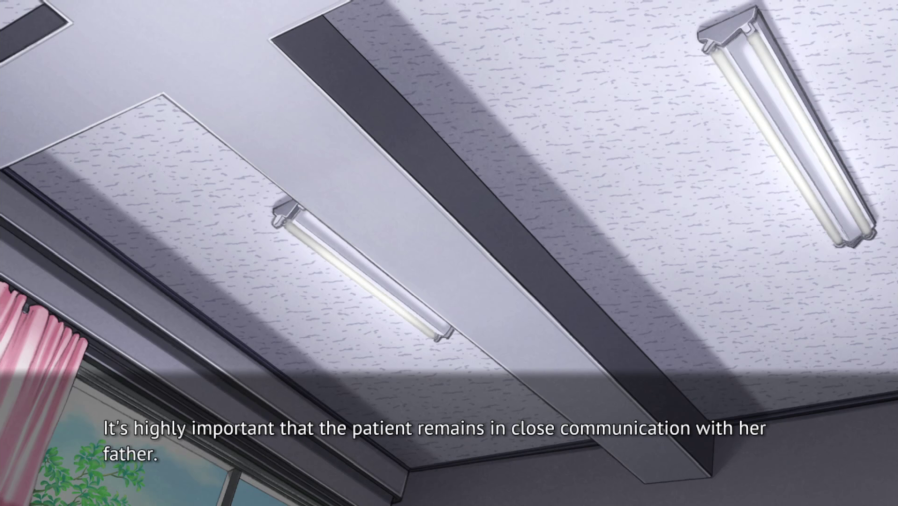
By deepening the communication between the two of them, it'll strengthen their family bond and loosen up her anxiety.
Since the patient only shows signs of an acute syndrome in this case, there's a very good chance that she'll recover within three months with her father's support and proper medication.
However, it's common for a patient who seemed to have recovered to have a sudden reoccurrence (a flashback) even after ten years.
Her father is still fairly young, and there's still a chance that he could remarry.
However, seeing an unfamiliar member of the opposite sex through remarriage could trigger a flashback in the patient, which may lead to avoidance behavior or hyperawareness.
Please explain this part thoroughly to the father in order for him to understand the recovery process.
Should the father decide to remarry, it's recommended that he should hold off in telling the patient until she reaches the age where she's capable of living independently.
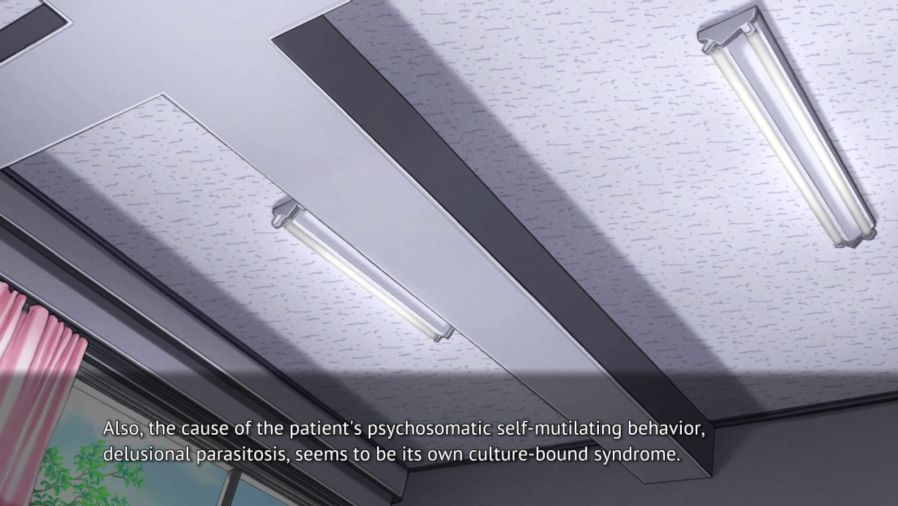
The patient blindly believes that leaving her home village will cause a curse, and that this curse was the cause of her parents' divorce.
We believe this is a subconscious defensive mechanism to reduce her mental trauma by shifting the blame from herself to her village's curse.
According to the patient's statement, the culture of her home village is extremely strict and exclusive.
The patient believes that there's no way to be saved from the curse other than by going back to the village, as the curse will continue as long as she lives in her current environment.
Through this, we see an inclination of schizophrenia, and believe the chances are high that the patient will continue to alter their perceived reality.
(Schizophrenia: A case where patients' personalities are reduced, causing altered perceptions of reality and delusions.)
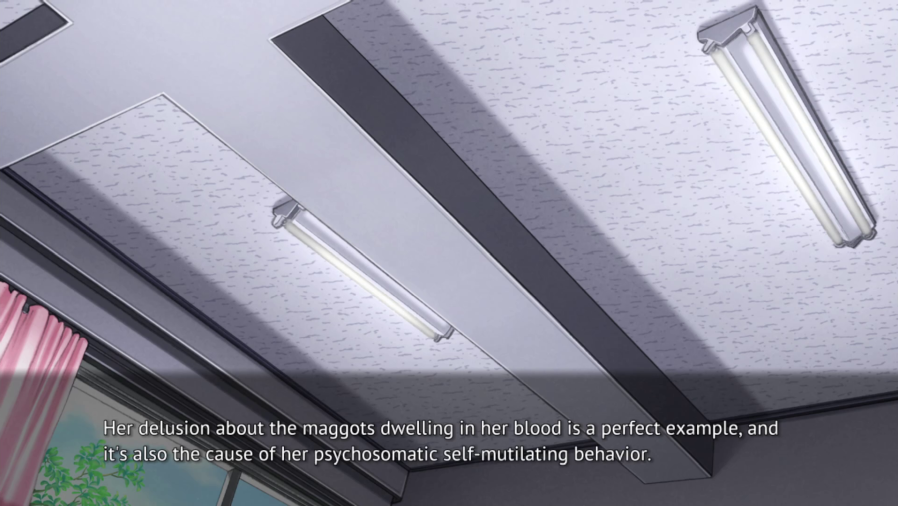
When a delusion involves psychosomatic self-mutilating behavior, it's extremely dangerous.
I highly recommend for the father to move back to the village if he's financially capable. Allowing her to live with relatives in the village might also work.
If such a strong belief can induce symptoms such as self-mutilation, then there might be other cases similar to this one.
Perhaps prior medical files that document similar culture-bound syndromes may be available at a large medical institution in her local area.
It'll then be possible to provide better and more accurate mental care for the patient by obtaining these case files.
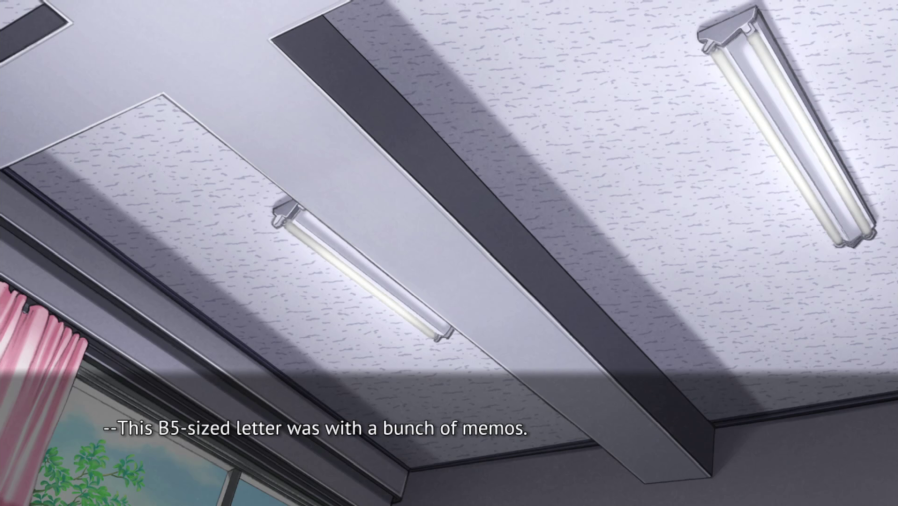
The following was on the backside of the letter.
